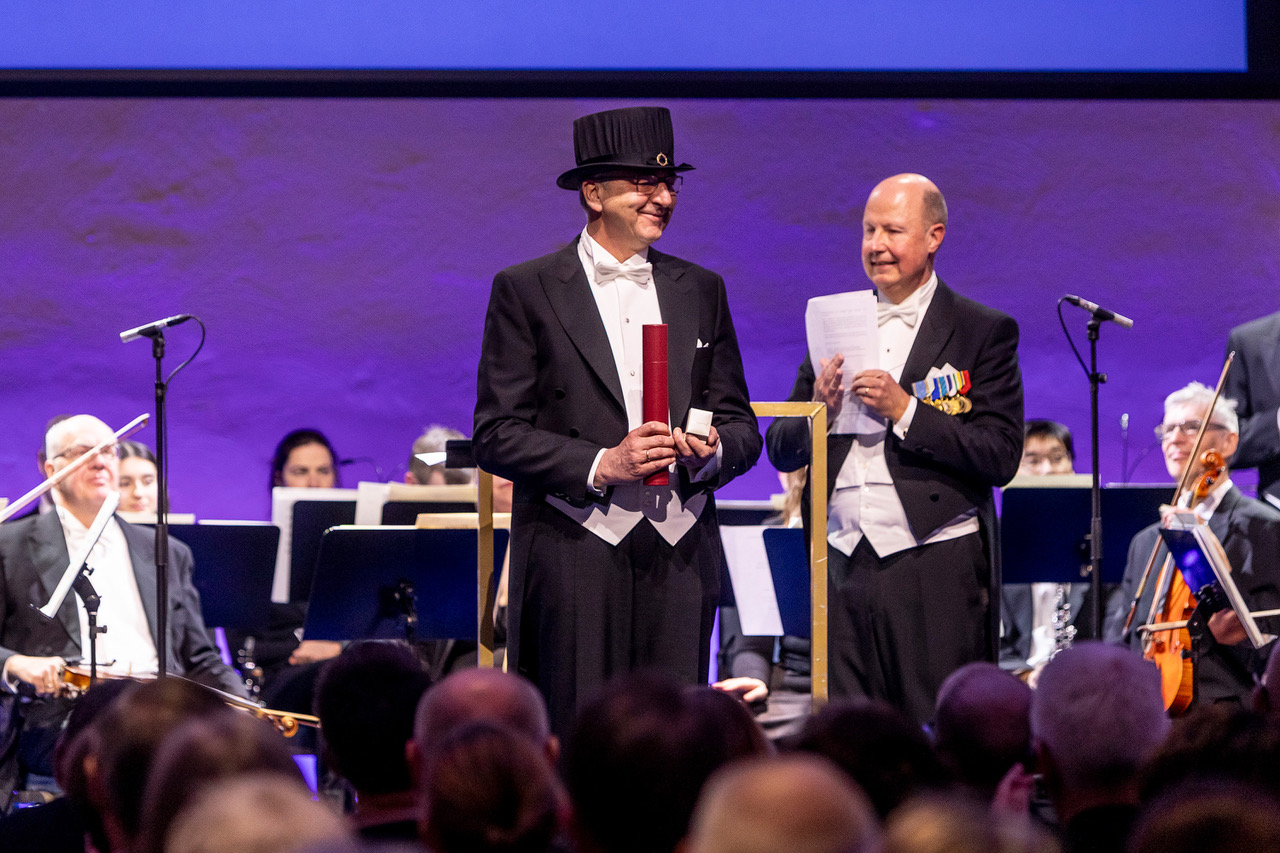“I am thrilled to have been awarded this honorary doctorate. I regard this as a major recognition of my scientific achievements and many years of collaboration with KTH,” states Uwe Bornscheuer, Chair of Biotechnology and Enzyme Catalysis at the University of Greifswald’s Institute of Biochemistry. Bornscheuer’s research foci include enzyme engineering for the degradation of plastic, organic synthesis, and the modification of fats/oils. He uses machine learning methods for protein design with the aim of developing sustainable reactions for chemistry and other fields. “I extend my sincere congratulations to Prof. Dr. Uwe Bornscheuer for his honorary doctorate. The University of Greifswald is proud to have such a pioneering expert in the field of biocatalysis,” says Katharina Riedel, Rector of the University of Greifswald.
Uwe Bornscheuer has been collaborating with KTH for more than two decades and has contributed towards joint publications, to the teaching of students, and to scientific exchange. The KTH awards honorary doctorates to honour persons who have made a significant contribution to society and fostered the development of the Swedish higher education institution.
Uwe Bornscheuer began to investigate the use of enzymes in organic synthesis during his work for his doctorate at the beginning of the 1990s. As a postdoc in Japan and during the completion of his habilitation in Stuttgart, he concentrated on methods of microbiology, molecular biology, and computer modelling. He has been a professor at the University of Greifswald since 1999.
Pioneering work in the recycling of plastic waste
“One of our most recent success stories is the discovery of the first enzymes that can be used to recycle the synthetic polymer polyurethane. We hope that this will play a part in solving the problem with plastic waste,” explains Uwe Bornscheuer.
Plastics can be recycled in various ways: mechanically (by breaking the material down into small pieces and using them in the production of new, petrol-based polymers), with chemical methods, or more recently, using enzymes. Chemical and enzymatic recycling work on the same principle. The polymer is broken down into its basic molecules, so-called monomers. However, the use of enzymes is much more energy efficient. The trick is to find and improve the right enzyme for each polymer.
“Initially, these are natural enzymes that have a very different physiological function. The first polymers were developed by chemists roughly a century ago, but natural evolution takes millions of years. We have found these enzymes and now need to use our enzyme-engineering methods to make them more efficient at degrading these unnatural polymers,” says Uwe Bornscheuer.
Students are a source of pride
With an exceptional academic output of more than 700 scientific papers, an h-index of 100, and more than 50 patents, Uwe Bornscheuer sets an example for scientific excellence and impact. “I am particularly proud of the many doctoral candidates who have completed their doctorates under my supervision, as well as the bachelor’s and master's students and postdocs, whom I have been able to supervise,” says Uwe Bornscheuer.
Contact at the University of Greifswald
Prof. Dr. Uwe T. Bornscheuer
Institute of Biochemistry
Felix-Hausdorff-Straße 4, 17489 Greifswald
Tel.: +49 3834 420 4367
uwe.bornscheueruni-greifswaldde
LinkedIn: https://www.linkedin.com/in/uwe-bornscheuer-1581827a/
ResearchGate: https://www.researchgate.net/profile/Uwe-Bornscheuer

